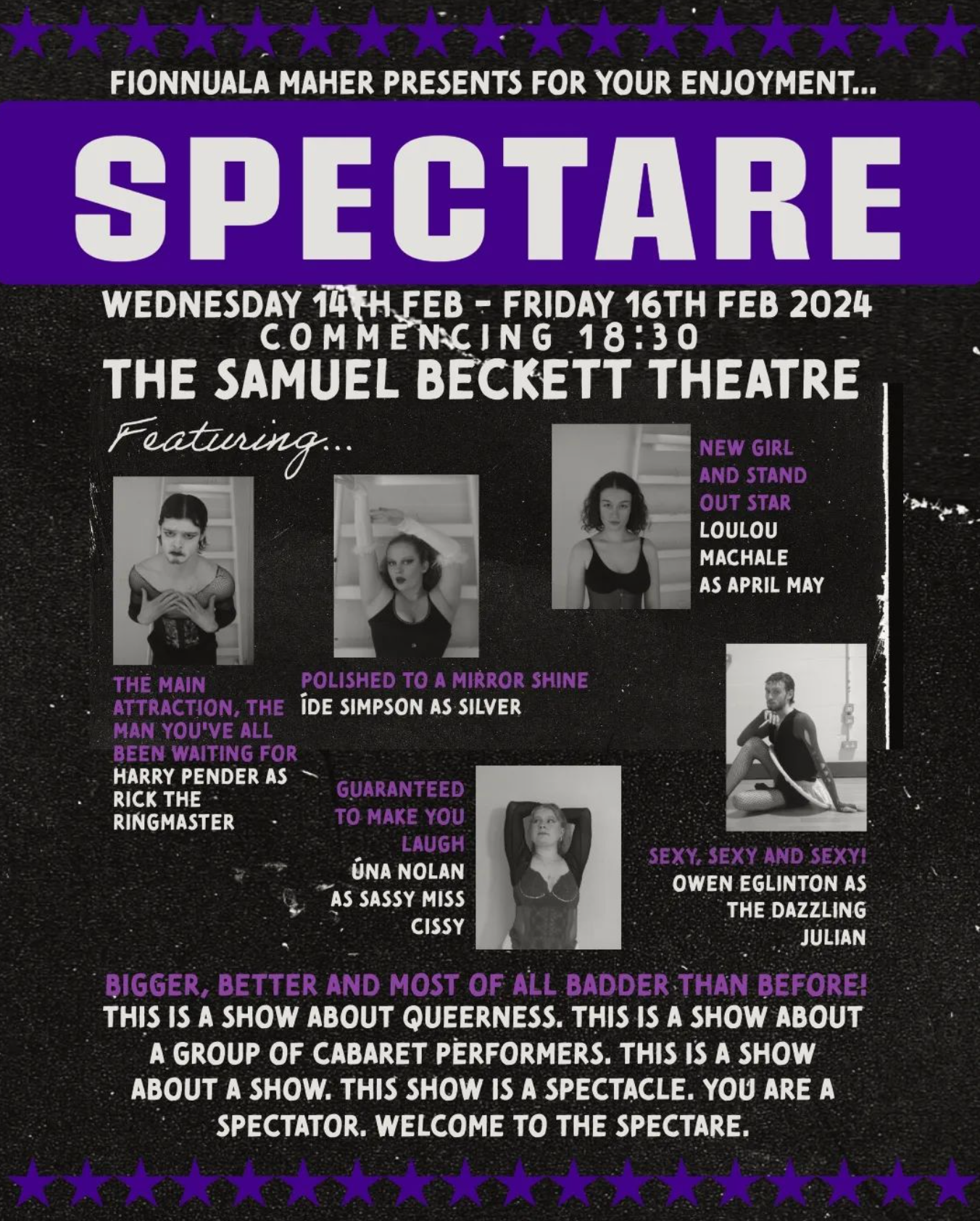Spectare promises to be “a show about a show”, and it definitely delivers by exploring the intricacies of being and becoming an artist. Fionnuala Maher’s show, performed in the Samuel Beckett Theatre from February 14th to 16th, offers a rare glimpse into a Cabaret performance group.
“Ultimately, Spectare reflects the difficulty of achieving personal authenticity as an artist”
The plot starts with the arrival of a new soon-to-be star, Maggie, also known as April May (Loulou Machale). She is scorned by members Silver (Íde Simpson), Sassy Miss Cissy (Úna Nolan) and Julian (Owen Eglington), all haunted by the memories shared with former co-worker and star of the show, Rick the Ringmaster (Harry Pender). As the play progresses, the audience witnesses the birth of stardom of Maggie as April May, and, through flashbacks, its concerning similarities to Rick’s. “Are you wearing a mask, or has it become your new face?” Ultimately, Spectare reflects the difficulty of achieving personal authenticity as an artist.
This theme of authenticity in artistry and identity is extremely relevant. In terms of acting, Pender’s facial expressions truly deserved a standing ovation, particularly when he would grab a mask from the air or ‘take’ an audience member’s face and put it on himself, acting out different emotions. His masking kept the audience engaged without saying a word. Additionally, Machale’s portrayal of Maggie’s evolution, from shy and quiet to out-there in every possible sense of the word, was excellent, with the epitome being her solo April May performance. The collaborative acting of Nolan and Pender was also smooth, elegant, and – by the expressions from members of the audience – deeply compelling. Perhaps the line that best epitomises the show’s theme was when Eglington, in character, expresses, “It is not my show that they are clapping for,” a line performed with such grace and commitment. A similar commitment was demonstrated by Simpson when acting as Silver, as the audience can experience how, perhaps, that flirtatiousness is Silver’s own mask. The lighting, designed by Cillian O’Donnell, tied the performance together beautifully, creating a serious but also Cabaret-like ambience.
There were some details that harmed the play’s otherwise delightful illusion. The props under the stage were visible at times, which could spoil an upcoming joke. The set-up of the stage made it difficult for certain members of the audience to see an actor’s facial expressions, as they had their backs facing them. Moreover, there were issues hearing Machale as Maggie at times, although that improved as the character grew more confident. In terms of plot, I wanted more depth from Silver’s and Julian’s characters. A late character plot twist in which we realised one character had more depth, also had no prior signals to clue the audience into what was coming. However, the plot still flowed well, and was certainly unique.
“The best performances are those that make you think even days after watching them, and this one certainly prompted greater reflection”
Spectare was “a show about a show” worth watching. It asked a lot of questions, even answered some of them, and left you inspired by the end. The best performances are those that make you think even days after watching them, and this one certainly prompted greater reflection. The indescribable talent of the writer and actors is clear, and came together so well to make this show a magnificent “spectacle” more than capable of holding its own mask.






